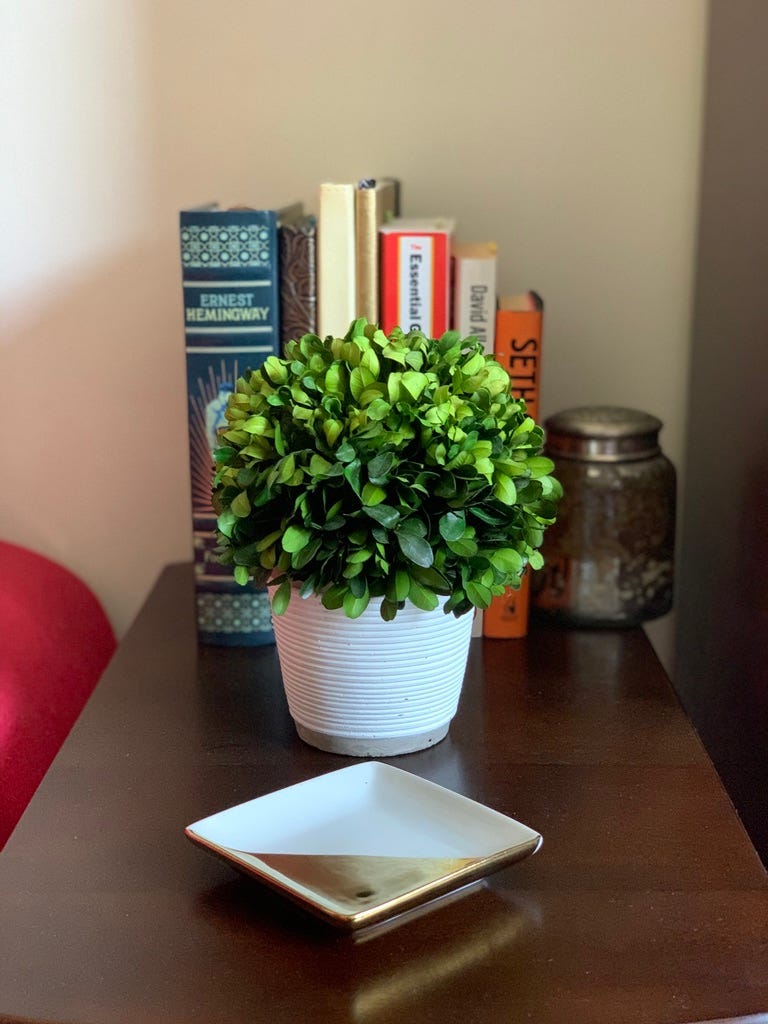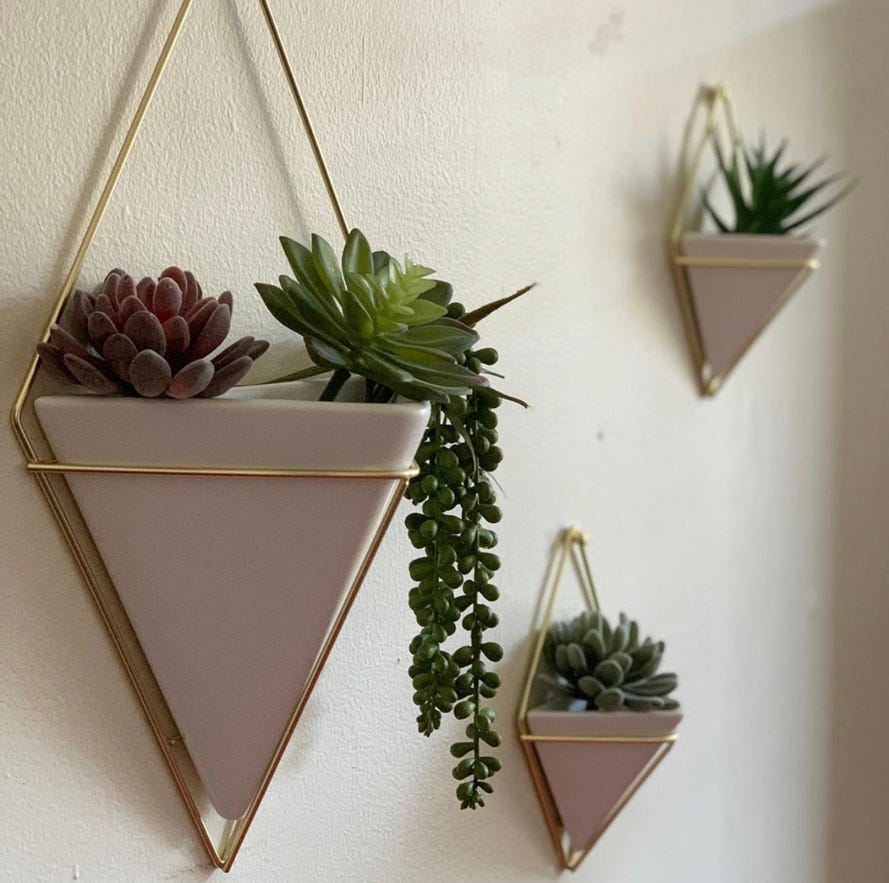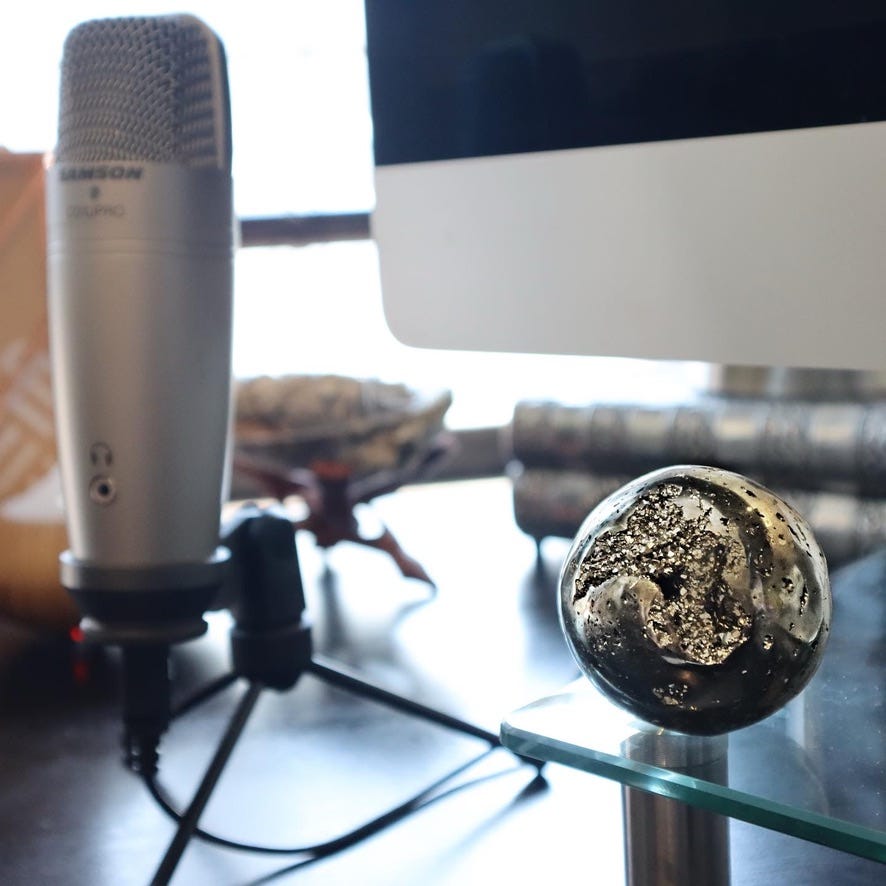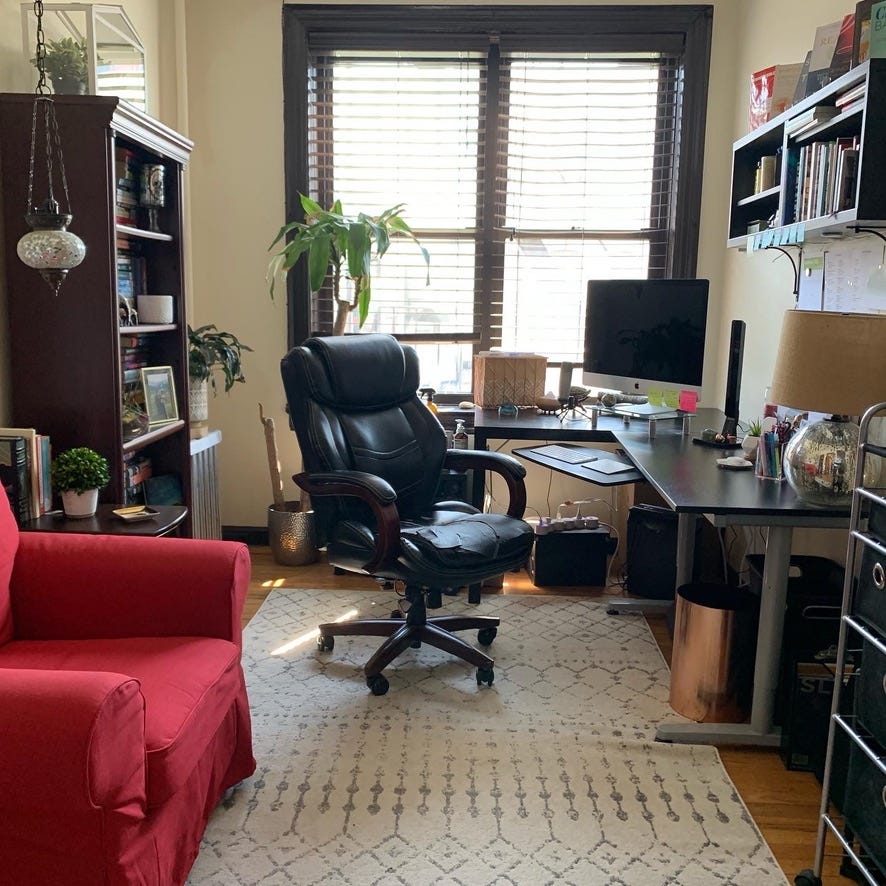
I have a confession to make.
It’s been six months since I deep cleaned my office.
Between an influx of big projects and general anxiety over the pandemic, taking the time to really clean my office fell straight to the bottom of my to-do list. Truthfully, I didn’t want to spend a second longer in my office than I needed to (who in their right mind invites more stress into their lives right now?), so I shifted my mindset to survival mode get my work done as quickly as possible, and then get out of there.

Eventually, that neglect caught up with me.
As my inbox got larger and the tasks I could feasibly procrastinate piled up, so did the mess. Stacks of magazines, collected with the best reading intentions, gathered dust in the corner. I avoided pulling reference books from my bookshelves during Zoom calls so that I wouldn’t sneeze on camera.
By the time six months passed, my “do the bare minimum” mindset had manifested itself entirely in my surroundings, which in turn made me want to spend even less time at my desk. In my efforts to protect myself mentally from the stress of the pandemic, I had made things worse.
Enough was enough. On a bright, sunny Saturday that I would otherwise have spent outside, I reluctantly decided to take a double shot of espresso, put on stretchy clothes that I didn’t mind getting dirty, and clean my office with intention.

As I moved from one section of the room to the next, the strangest thing started to happen: the more care and dedication I gave my office, the more my mindset started to shift. Reorganizing clutter made me realize that I’d been feeling low-grade frustration every time I saw something out of place. The very act of discarding old notes from completed projects immediately created space for new ideas. Every surface I cleaned, every paper I recycled, made me more and more excited to sit down at my (now clean) desk and get to work on those optional, previously procrastinated things.

Simply put, the act of physically giving care to my office made me want to be more intentional with the work I did in it.
The good energy I was creating physically immediately transferred over to my mindset.
I loathe thinking about how long I had let my environment affect my mood. I’m now convinced that if you’re stuck, tired, or need motivation in your projects, one of the best things you can do is to clean your space with intention.
What follows is my method for refreshing your workspace with the intention of expelling the energy that is holding you back, and bringing in new, motivating energy. You’ll want to think of this process as a ritual and dedicate a few hours to do it well.
Refreshing your workspace with intention
- Start by picking up any loose items on the floor and putting them just outside of the room. For me, this was stacks of magazines, books, and items like standing fans and ring lights. These are things that will either find a home later or will be tossed or donated.
- Make your way clockwise through the room, starting at the bottom left corner (just next to the door). Pick items up off of surfaces and dust beneath them. As you pick each item up, consider if it’s in its proper place or if it is better off elsewhere, or donated. Wherever you choose to place it, do so with intention, and the knowledge that it is your decision that placed it there. This kind of intentional dusting will take a lot longer than your ordinary dusting, which is exactly the point. You’re not just cleaning, you’re creating the space to consider and respect each decision you make. You are training yourself to get out of a reactionary mindset and into a more intentional and mindful one, which will translate over to your work.
- Continue to move through the room clockwise, with the goal to remove as many items from your surroundings as possible. We often create clutter as a means to protect ourselves, but the less visible clutter you have, the clearer your mind will be. Take joy in throwing away and/or recycling anything that has already served you; for me, this was old magazines, completed project notes, and anything that could be digitized. If you come across something you should keep but don’t need to access often, tuck it out of sight.
- Finally, think about grounding your office space. After all, how can you feel grounded enough to feel creative if your space isn’t grounded in the first place? Count all of the electronics in your office (I counted ten in mine, from the computer and the printer to the standing fan and my cell phone); each of those electronics emits positive ions, which causes a whole host of problems (e.g. anxiety, fatigue, irritability, lack of energy, and poor concentration). To counter this, you essentially want to bring the calming effects of nature (think waterfalls, the beach, and the forest), along with its negative ions, into your space. The easiest way to do this is to bring in water; mopping your floors will immediately freshen the energy in the room, and you can continue this by using a humidifier or an oil diffuser. Keep live plants nearby, and light sage or a Himalayan salt lamp.
Once you’ve done all of this and physically removed the trash and recycling from the space, think about how you’ve removed the stale, stagnant energy that wasn’t serving you, and replaced it with new, exciting energy. You’ll feel a difference in the very air around you, and you might even be motivated to sit down and start working right then and there!
As so many of us are working from home during the pandemic, it’s more important than ever to stay in tune with ourselves mentally so that we can succeed professionally. In many ways, our mindsets and attitudes are products of our physical surroundings. If you notice you’re feeling anxiety, frustration, can’t-get-out-of-here-fast-enough-ness when you’re in your office, ask yourself if that negativity might be eased by a happier, tidier work environment. Odds are good, spending some time cleaning is an easy way to give those bad vibes the boot.

Lauren Taylor Shute is the Founder and Executive Editor of Lauren Taylor Shute Editorial Inc., a full-service editorial firm based in New York City that helps authors around the world develop their ideas, build their platforms, perfect their manuscripts, and find representation or publication for their work. She speaks regularly at writing conferences and has been featured in Forbes, Fast Company, and Glamour magazine.




